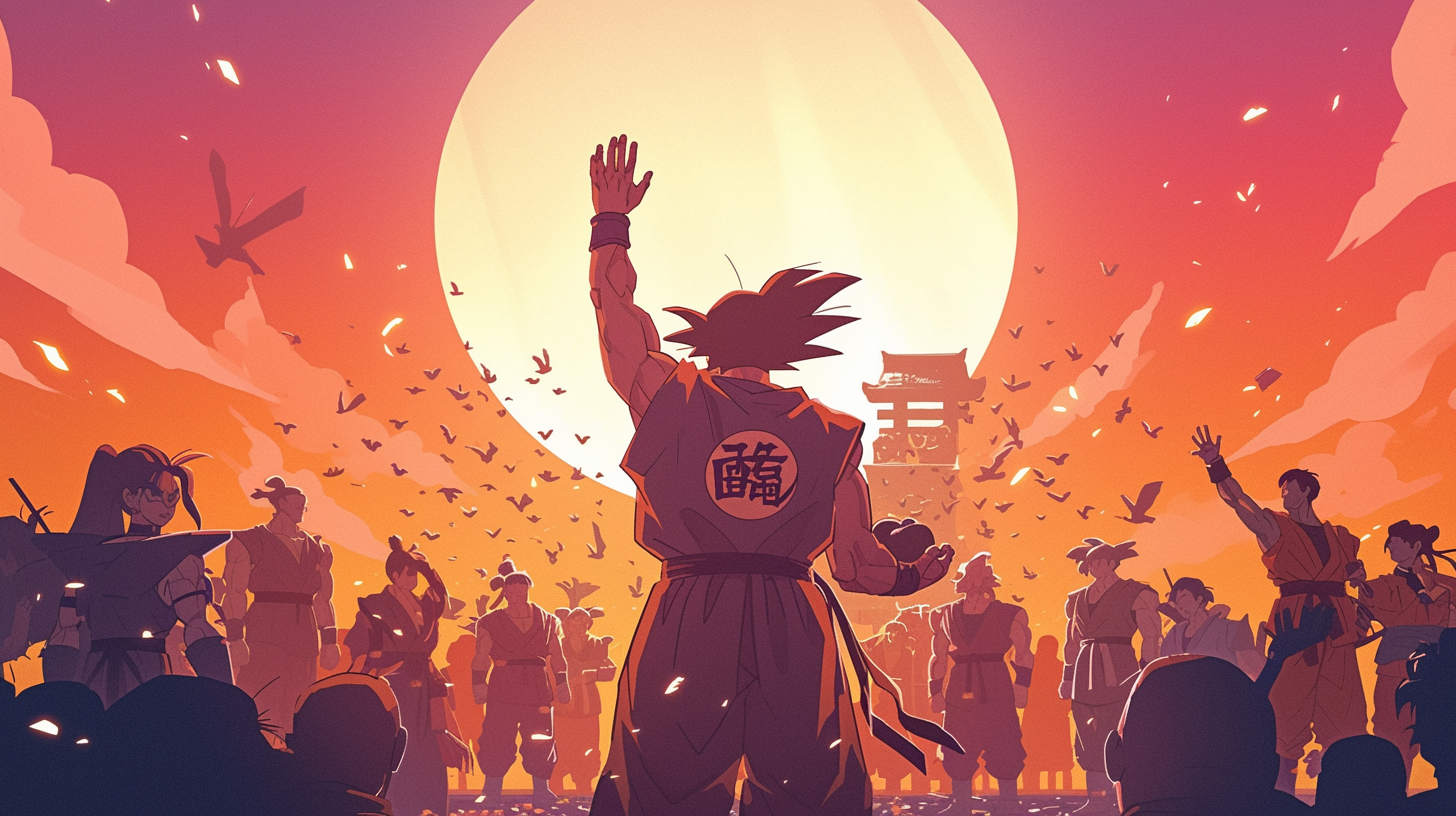Remembering Akira Toriyama and his Dragon Ball Empire: Lessons on Legacy and IP Strategy

In a world where imagination knows no bounds, Akira Toriyama's name shines as a beacon of creative brilliance. As the mastermind behind the Dragon Ball franchise, Toriyama, who passed away on March 1, 2024, has left an indelible mark on the realms of manga, anime, and global media and entertainment. Through his unparalleled creativity, devotion to his vision, and strategic approach to intellectual property (IP) management, Toriyama has created a lasting impact that traverses space and time, captivating audiences across the globe. This article extracts key lessons and insights from Toriyama's celebrated creative journey. Most importantly, it pays homage to Toriyama, his life-long commitment to his craft, and his otherworldly influence on modern pop culture and entertainment.
Birth of a Legend: Dragon Ball's Manga Origins
Toriyama's epic journey began with the serialization of the Dragon Ball manga in Weekly Shōnen Jump, published by Japan's largest manga publisher, Shueisha. This partnership, as powerful as the mythical wish-granting dragon Shenron, laid the foundation for a franchise that would inevitably transcend borders and cultures worldwide. Toriyama's unique approach to storytelling, combined with Shueisha's generational publishing expertise, propelled the manga to unprecedented heights, leaving audiences hungry for more adventures featuring Goku and his companions.
From Bookshelves to Screens: Dragon Ball's Anime Adaptation
Recognizing the immense potential of Toriyama's creation, Toei Animation joined forces with the iconic artist's studio and the manga publishing behemoth to adapt the Dragon Ball manga into an animated TV series. With Toei at the helm and licensing arrangements with regional animation studios like Funimation in North America, Dragon Ball flew from the pages and the animated TV series captivated audiences across the world. Just as Goku's first Super Saiyan transformation marked a turning point in the series, the anime adaptation elevated Dragon Ball to new heights of success, thereby solidifying its spot in the annals of pop culture history.
Exploring A New Dimension: Dragon Ball Toys, Video Games, and Merchandise
Toriyama's IP strategy entered new frontiers when Bird Studio and Shueisha allied with Bandai Namco, a Japanese video game publisher and toy manufacturer, to develop an array of Dragon Ball video games, toys, and merchandise. This partnership expansion, as dynamic as the Goku-Vegeta fusion dance, gave audiences the ability to immerse themselves in the Dragon Ball universe like never before. From the iconic Budokai video game series to limited edition action figures, these mediums have kept the spirit of Dragon Ball alive and thriving in the third dimension.
Have questions about your specific situation?
Every intellectual property situation is unique. Chat with VenAgent to see if we can help.
Talk to VenAgentBuilt to Scale: The Keiretsu Connection
Dragon Ball's long-term success can be attributed, in large part, to the Japanese business practice called keiretsu — a network of businesses with interlocking executive and shareholder relationships spanning throughout the entire supply chain. This intricate network of companies, including Toriyama's Bird Studio, Shueisha, Toei, and Bandai, fostered a collaborative ecosystem that accelerated the growth and sustained the life of the Dragon Ball universe. For decades, the Dragon Ball keiretsu has enabled seamless coordination, essential resource sharing, and a collective vision that catapulted Dragon Ball from a mere local manga operation with a limited audience to a permanent fixture in modern pop culture records.
Defending the Treasure Trove: Real World Legal Battles
As with any treasure chest of valuable property, Dragon Ball has faced its share of challenges, which ultimately led to legal battles and court intervention. From the unauthorized live-action film adaptation by Twentieth Century Fox to the fraudulent claims of ownership by the Chinese company DBCC, Toriyama and keiretsu partners have fiercely defended the integrity of the Dragon Ball franchise. Indeed, Toiryama, Bird Studio, Shueisha, Toei Animation, and Bandai Namco each have an ownership stake in various components of the overall Dragon Ball IP portfolio through complex organizational structuring, licensing arrangements, and other agreements. And the legal battles serve as a testament to the unwavering collective commitment of the Dragon Ball keiretsu members to protect and preserve Toriyama's creative vision.
Lessons from the Master: Integrity, Trust, and IP Strategy
Akira Toriyama's Dragon Ball IP strategy offers invaluable insights for aspiring creators and entrepreneurs:
- Understand the intricacies and nuances underlying intellectual property and other proprietary rights, and ownership thereof, including rights to trademarks, copyrights, trade secrets, domain names, social media accounts, as demonstrated by the Dragon Ball franchise.
- Foster strong partnerships and alliances, like those within the keiretsu, which are essential for commercial success and global reach. However, be mindful that not all partners or allies are a good fit, as some may prioritize their own interests over the integrity of the creative vision.
- Embrace change and adapt the source material to various mediums of expression and distribution (e.g. TikTok) as Toriyama and Shueisha did, which was key to Dragon Ball's success.
- Maintain creative control, as Toriyama and Bird Studio did, especially in an industry where media conglomerates often prioritize capitalism and control over the creator's vision; and
- Ensure licensees stick to the standards set by the original source material, as large deviations can lead to failures like the live-action "Dragon Ball: Evolution" movie, which can hurt the reputation and goodwill of the original creators.
By having at least a high-level understanding of IP rights, building strong relationships throughout the entire supply chain, embracing change, maintaining control, and ensuring others adhere to quality standards, entrepreneurial creators and their teams can follow in Toriyama's footsteps and build one or more successful, enduring masterpieces.
Setting the Stage for an Enduring Legacy
As the Dragon Ball franchise continues to evolve and expand with creative control passing on to Toriyama's son, Toriyama's legacy will remain an eternal spring of inspiration. Through his masterful storytelling, a unique IP strategy, and trust instilled throughout the keiretsu, the spirit of Dragon Ball, much like the indomitable will of its protagonists, will continue to thrive, reminding us that the possibilities are endless with a little creativity, adaptability, and foresight, together with the right team. As fans, we all can't help but be grateful for the unforgettable journey Toriyama has taken us on throughout the decades, and we're excited to experience the new adventures that await over the next. Our hearts go out to Toriyama's surviving family members, who have not only lost a beloved husband, father, and grandfather but also a creative genius who brought joy to innumerable communities worldwide.
About the Author

Alex L. Nguyen
Founder & Principal Attorney
Before full-time law practice, Alex was a venture-backed startup entrepreneur. The founder perspective shapes how he practices law and writes about legal and business matters.
Need legal guidance for your startup?
Let's discuss how VenCounsel can help you navigate legal challenges and accelerate your growth.
Get in Touch